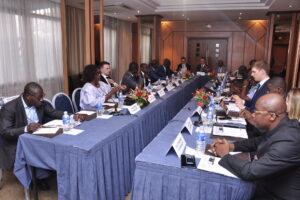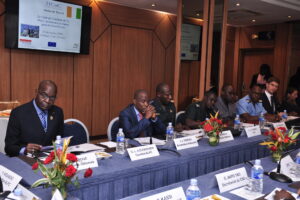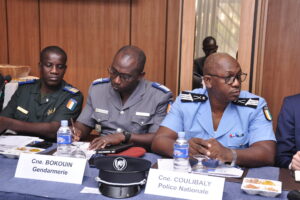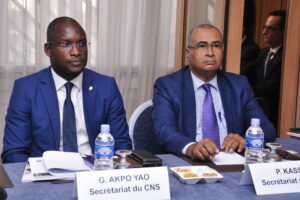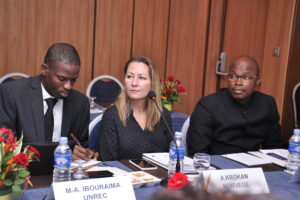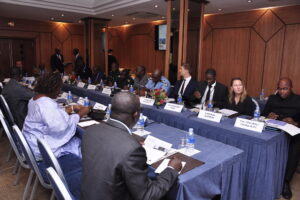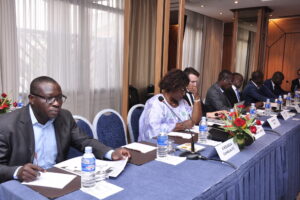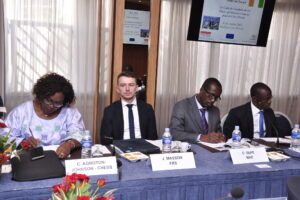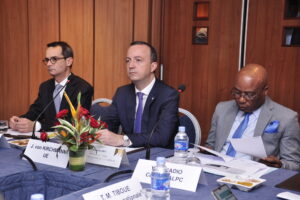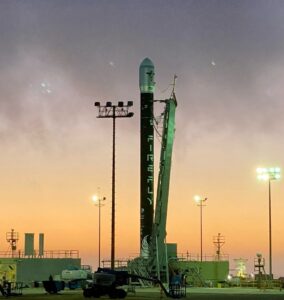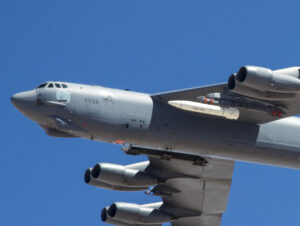Expert Mission on HCoC with Ivory Coast
12 December 2019
On 12 December 2019, the FRS, conducted an expert mission in Ivory Coast to discuss and debate the HCoC.
AGENDA
WELCOMING REMARKS
- Préfet Yao KOUADIO, President, ComNat-ALPC
- Alexandre HOUDAYER, Secretary General, Foundation for Strategic Research
- Laurent D’ERSU, Deputy Head of Delegation, European Union Delegation to Ivory Coast
I/ THE HCoC: STRUCTURE & CONTRIBUTION TO INTERNATIONAL SECURITY
PANELLISTS:
- Anita KROKAN, Principal Advisor, Ministry of Foreign Affairs, Norway, Representative of the HCoC Chair
- Alexandre HOUDAYER, Secretary General, Foundation for Strategic Research
- Philipp RÖSSL, Attaché, Embassy of Austria to Nigeria, Representative of the Immediate Central Contact (ICC)
TOPICS OF DISCUSSION:
- Presentation of the Code
- The concrete meaning of joining and implementing the HCoC
- The HCoC in Africa and ECOWAS: positions and evolution
- Successes and challenges of the HCoC in the current environment
II/ THE HCoC IN IVORY COAST’S NON-PROLIFERATION & DISARMAMENT POLICIES
MODERATOR:
- Jean-Jacques GORGUI, Administrator, Defence and Security Committee, National Assembly
PENALLISTS:
- Jean MASSON-CHEREL, Research Fellow, Foundation for Strategic Research
TOPICS OF DISCUSSION:
- Ivory Coast’s non-proliferation policies and stance as a non-permanent member of the UNSC
- The relevance of joining the HCoC in relation to Ivory Coast’s non-proliferation policies
- The role of CBMs in addressing ballistic proliferation
- Issues arising from dual-use technologies
- Issues of WMD proliferation in relation to non-state actors
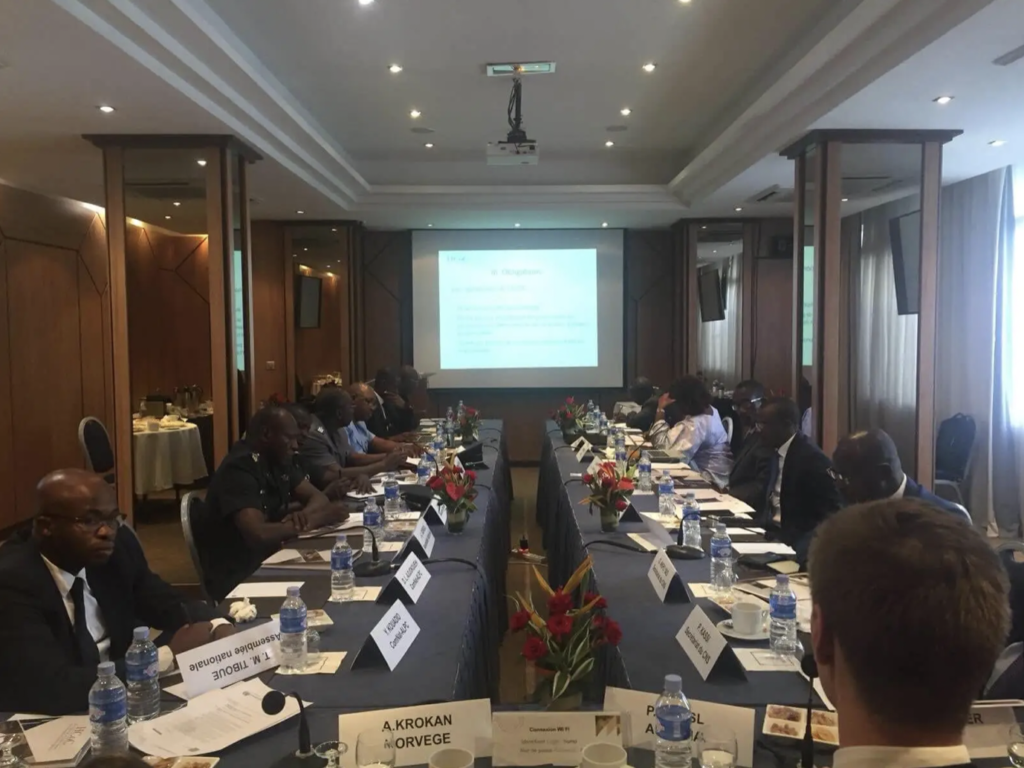
III/ WMD NON-PROLIFERATION: LINKS WITH REGIONAL GOVERNANCE
MODERATOR:
- Jean MASSON-CHEREL, Research Fellow, Foundation for Strategic Research
PENALLISTS:
- Christiane AGBOTON-JOHNSON, Director for Special Programmes, Centre des Hautes Etudes de Défense et de Sécurité (CHEDS), Dakar
- Mouhammed-Awali IBOURAIMA, Disarmament Projects Manager, UNREC
TOPICS OF DISCUSSION:
- HCoC within the framework of peace and development policies in Western Africa
- The WMD threat to Western Africa
- Related issues: SALW cross-border trafficking in Western Africa and Ivory Coast
- Regional governance on non-proliferation and disarmament
CONCLUSION REMARKS
Summary of the debates
The aim of this meeting was to introduce the Code’s objectives and structure, as well as to demonstrate the relevance of the HCoC to representatives of the Ivory Coast within global, regional, and sub-regional dynamics. This event, organised by the Foundation for Strategic Research (FRS) with the support of the EU Delegation to Ivory Coast and under the leadership of Ivory Coast’s ComNat-ALPC, provided an opportunity to conduct a constructive dialogue on the Code.
The first panel provided participants with a comprehensive overview of the Code’s ambitions, objectives and functioning. The Code is a politically binding instrument, which includes a set of transparency and confidence-building measures (CBMs) on ballistic missiles. It was underlined that even though ballistic proliferation issues appear to be somewhat disconnected from the security priorities of the Ivory Coast, which is more directly concerned by issues related to Small Arms and Light Weapons (SALW), proliferation issues are global and lead to worldwide geopolitical risks. Moreover, while states in the region may be unlikely to acquire ballistic missiles, non-state actors may in the futurebe able to procure such systems. The HCoC therefore constitutes a small yet key tool to reinforce international security; and Ivory Coast, which supported the Code within the United Nations General Assembly could consider subscribing to it.
The second panel aimed to shed light on Ivory Coast’s policies and priorities in the field of non-proliferation and disarmament. Ivory Coast’s historical proactive position in this field through adherence to international treaties, norms and policies, was highlighted, emphasising the promotion of multilateralism and complete disarmament as fundamental principles and objectives of the Ivorian diplomacy. Furthermore, the usefulness of soft and pragmatic norms has been expressed. It was noted that they provide forums for discussion on relevant issues and constitute confidence-building measures to mitigate instabilities arising from the possession of ballistic missiles.
The third and last panel brought together regional experts and linked issues related to weapons of mass destruction (WMD) to other regional priorities. As such, the panel focused on UN and ECOWAS initiatives and policies within the region, but also offered a different set of incentives for joining HCoC by linking such instruments to the much broader legal and political framework for peace, development, and human security in Western Africa and on the continent as a whole.
